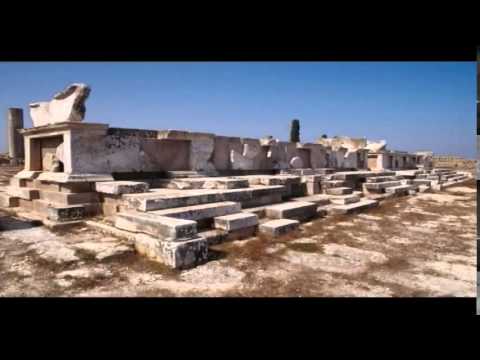
Libya, located in North Africa, bordered by the Mediterranean Sea to the north and surrounded by Egypt, Sudan, Chad, Niger, Algeria, and Tunisia, is a nation rich in history and culture. Often overlooked as a tourist destination due to political instability and security concerns in recent years, Libya nonetheless offers a plethora of unique attractions for those adventurous enough to explore its treasures. From ancient archaeological sites and grand desert landscapes to traditional markets brimming with artisan crafts, Libya holds potential as an emerging tourist destination.
#### Historical Richness
Libya’s most compelling allure lies in its historical significance and the wealth of ancient sites scattered across the country. The ruins of Leptis Magna and Sabratha, both UNESCO World Heritage sites, are prime examples of Roman architecture that rival those found in Italy or Greece. Leptis Magna was one of the most beautiful cities of the Roman Empire, with its triumphal arches, basilicas, and amphitheaters beautifully preserved through centuries.
Furthermore, Cyrene offers another peek into the past with its Greek ruins nestled in an idyllic hillside location overlooking the Mediterranean. This site provides not only historical context but also spectacular views that emphasize the natural beauty surrounding it.
#### Natural Wonders
Beyond its ancient ruins, Libya’s natural landscape offers diverse experiences — from the Mediterranean coastline to the expansive Sahara Desert. The beaches along the Tripolitania coast are pristine and largely untouched by tourism developments. They offer peaceful retreats compared to more crowded Mediterranean destinations.
The desert brings another aspect of Libya’s environmental diversity. The Akakus Mountains (Tadrart Acacus) feature stunning rock formations and prehistoric rock art that provide insight into early human life. Moreover, an excursion into this region showcases spectacular sand dunes and rare desert flora and fauna.
#### Cultural Experiences
Tripoli, Libya’s capital city is rich with history but also serves as a living museum where one can experience modern Libyan life amidst historical surroundings. The city’s medina — old town — contains bustling souks where traditional crafts are sold alongside modern goods. Here visitors can find everything from intricately designed carpets to handmade jewelry.
Cuisine also plays a significant part in Libyan culture with traditional dishes such as couscous (steamed balls of semolina) served with lamb or fish; bazin (a hard dough served with tomato sauce); and Libyan soup offering flavors not commonly found elsewhere.
#### Challenges & Considerations
Despite its attractions, visiting Libya comes with significant challenges primarily due to political instability following the 2011 uprising which ousted Muammar Gaddafi. Since then, control has been divided among different armed groups leading to unpredictable security situations throughout many parts of Libya.
Tourism infrastructure is still underdeveloped with limited international flights predominantly coming into Tripoli. Accommodations vary widely in quality while travel within regions may require special permissions from local authorities or hiring private security firms for safety reasons.
#### Looking Ahead
For those interested in visiting Libya it’s essential to check travel advisories regularly issued by governmental departments like the U.S State Department or UK Foreign Office. Working through reputable travel agencies familiar with local conditions can provide an additional layer of safety for tourists willing to delve into this less-traveled path.
As stability hopefully returns over time there is substantial opportunity for growth in tourism which could play a crucial role in revitalizing both local economies and international perceptions about this fascinating country at crossroads between various civilizations throughout history.
In conclusion, while currently suited only for very adventurous travelers due to ongoing security issues; looking forward beyond these challenges reveals that Libya indeed holds all elements necessary for becoming a notable destination within African tourism landscape.
